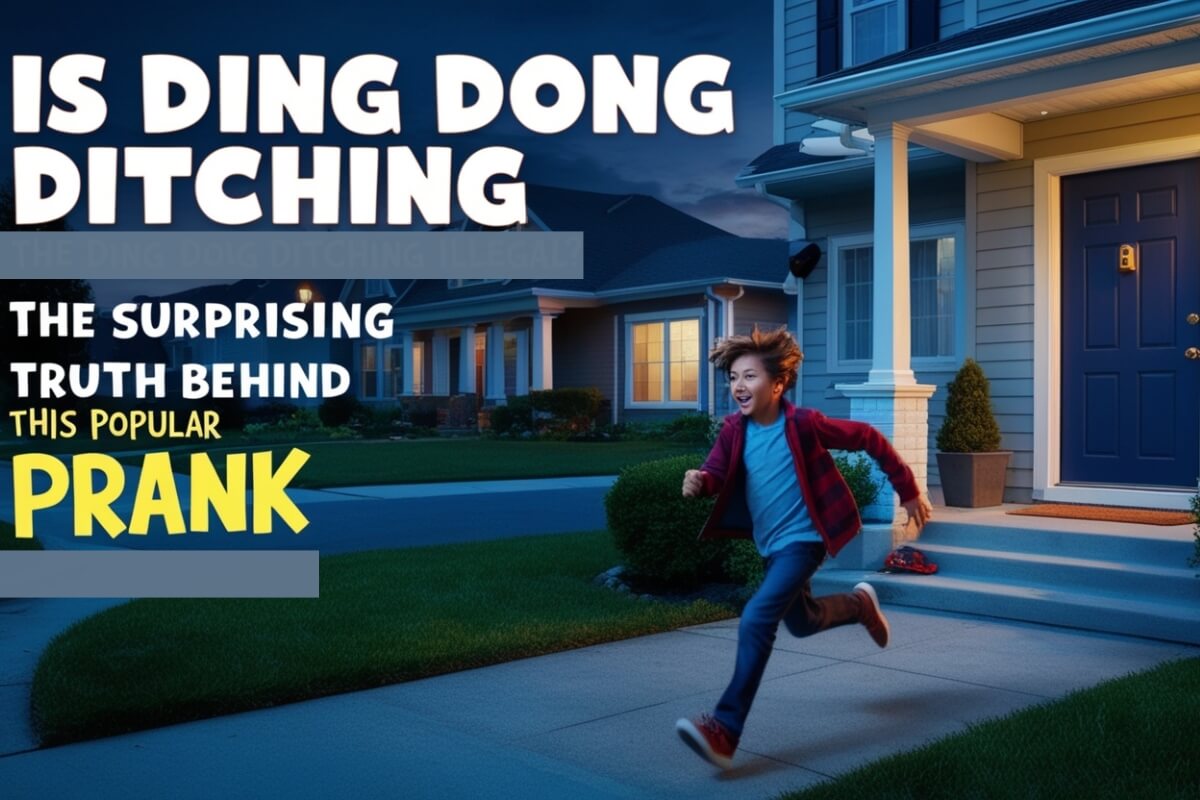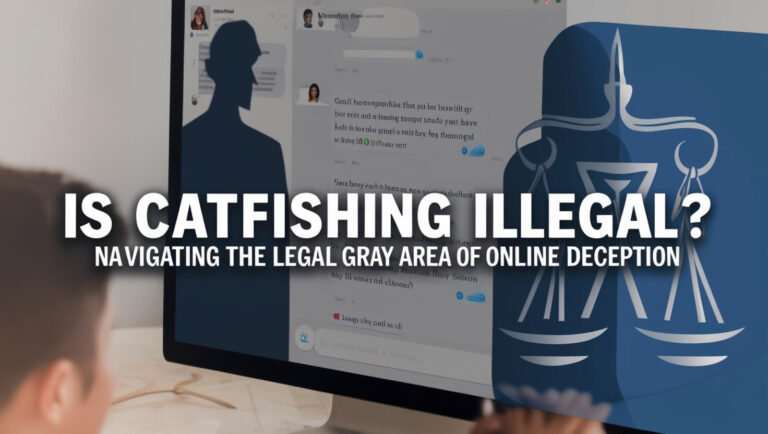Is Ding Dong Ditching Illegal? The Surprising Truth Behind This Popular Prank

Ding dong ditching, the age-old prank of ringing doorbells and running away, has been a source of mischief for generations. But is ding dong ditching illegal? The answer isn’t as straightforward as you might think. While the act itself isn’t typically a crime, it can lead to legal trouble depending on the circumstances and location.
Let’s dive into the world of ding dong ditching, exploring its legal status, potential consequences, and why it remains a controversial topic in communities across the globe.
What Exactly Is Ding Dong Ditching?
Before we tackle the legality, let’s get clear on what we’re talking about. Ding dong ditching is a prank where someone rings a doorbell or knocks on a door, then quickly runs away before the resident can answer. It’s simple, but it’s been causing headaches for homeowners and giggles for pranksters for decades.
The Origins of Ding Dong Ditching
Believe it or not, this prank has been around longer than electric doorbells. Its roots trace back to 19th century England, where it was known as “knock, knock, ginger.” Why ginger? No one’s quite sure, but it stuck.
Different Names for the Same Prank
Depending on where you are, you might hear it called:
- Knock and run
- Ring and run
- Doorbell ditch
- Nicky nicky nine doors (in Canada)
No matter what you call it, the game remains the same – and so do the potential risks.
The Legal Status of Ding Dong Ditching
Now, let’s get to the heart of the matter. Is ding dong ditching actually against the law?
Is Ding Dong Ditching a Crime?
In most places, the act of ringing a doorbell and running away isn’t specifically illegal. However, it’s not that simple. The legality often depends on:
- How often it’s done
- The time of day (or night)
- Whether any property damage occurs
- The intent behind the action
Potential Legal Consequences
While ding dong ditching itself might not be illegal, it can lead to charges like:
- Trespassing
- Disturbing the peace
- Harassment (if repeated)
- Vandalism (if property is damaged)
These charges can carry fines and, in extreme cases, even jail time. It’s not just a harmless prank in the eyes of the law.
Ding Dong Ditching Laws Across the United States
The legal landscape for ding dong ditching varies widely across the U.S. Let’s take a closer look at how different states handle this prank.
State-Specific Regulations
Some states take a harder line than others:
- In Florida, ding dong ditching can be considered criminal trespass.
- Illinois may treat it as disturbing the peace.
- California might view repeated incidents as harassment.
It’s crucial to know your local laws before considering this prank.
Local Ordinances and Their Impact
Many cities and towns have their own rules about nuisance behaviors. These local laws can make ding dong ditching illegal even if state law doesn’t specifically address it.
For example, some communities have noise ordinances that could apply to late-night doorbell ringing. Others might have laws against loitering that could catch ding dong ditchers.
When Does Ding Dong Ditching Cross the Legal Line?
There’s a fine line between a harmless prank and a punishable offense. Let’s explore when ding dong ditching might become illegal.
Trespassing Concerns
Stepping onto someone’s property without permission is trespassing. While briefly approaching a front door might be okay, lingering or entering a yard could lead to trouble.
Disturbing the Peace
Late-night ding dong ditching or repeated incidents can disturb residents. This is when “peace disturbance” charges might come into play.
Harassment and Intimidation
If the same house is targeted multiple times, it could be seen as harassment. This is especially true if the residents have asked for the behavior to stop.
The UK Perspective on Ding Dong Ditching
Across the pond, they take a different view on this prank. Let’s see how the UK handles ding dong ditching.
British Laws Regarding Knock and Run
In the UK, ding dong ditching (or “knock, knock, ginger”) is actually illegal under the Metropolitan Police Act of 1839. It’s considered a form of anti-social behavior.
Penalties for Ding Dong Ditching in the UK
British pranksters caught in the act could face:
- Fines
- A talking-to from local police
- In extreme cases, up to 14 days in jail (though this is rare)
It’s clear the UK takes this prank more seriously than some other countries.
Ding Dong Ditching in Other Countries
The legal status of ding dong ditching varies around the world. Let’s take a quick global tour.
Australia’s Stance on the Prank
Down Under, ding dong ditching can result in a $250 fine. It’s considered a nuisance behavior that disrupts community peace.
European Approaches to Doorbell Pranks
Many European countries don’t have specific laws against ding dong ditching. However, like in the U.S., related charges like trespassing or disturbing the peace could apply.
The Psychology Behind Ding Dong Ditching
Why do people, especially kids and teens, find this prank so appealing? Let’s dig into the psychology.
Why Do People Engage in This Behavior?
Several factors drive ding dong ditching:
- Thrill-seeking
- Peer pressure
- Testing boundaries
- Boredom
Understanding these motivations can help address the behavior more effectively.
The Thrill-Seeking Aspect
The adrenaline rush from running away is a big part of the appeal. It’s a relatively low-risk way for young people to feel rebellious and exciting.
Potential Consequences of Ding Dong Ditching
While it might seem harmless, ding dong ditching can have real impacts. Let’s look at the potential fallout.
Legal Ramifications
We’ve covered the possible legal consequences, but it’s worth emphasizing:
- Fines
- Community service
- A criminal record (in severe cases)
These can have long-lasting effects, especially for young people.
Social and Community Impact
Ding dong ditching can:
- Disrupt sleep
- Cause anxiety for residents
- Damage community trust
- Lead to unnecessary police calls
It’s not just about the pranksters – the whole community can feel the effects.
Alternatives to Ding Dong Ditching
For those seeking thrills or laughs, there are safer alternatives that won’t land you in hot water.
Safer Pranks and Activities
Consider:
- Organized scavenger hunts
- Escape rooms
- Paintball or laser tag
- Funny viral video challenges (that are safe and legal)
These can provide excitement without the legal risks.
Channeling Mischievous Energy Positively
Encourage positive outlets like:
- Sports
- Drama clubs
- Volunteer work
- Creative projects
These activities can provide the excitement and social bonding that ding dong ditching offers, but in a constructive way.
What to Do If You’re a Victim of Ding Dong Ditching
If you find yourself on the receiving end of this prank, there are steps you can take.
Dealing with Persistent Pranksters
Try these strategies:
- Install a visible security camera
- Use a smart doorbell with recording capabilities
- Leave exterior lights on
- Talk to your neighbors about the issue
Often, making your house a less appealing target is enough to stop the behavior.
When to Involve Law Enforcement
If the pranking is persistent or you feel threatened, don’t hesitate to contact local police. They can:
- Increase patrols in your area
- Speak to known troublemakers
- Advise you on further steps to take
Remember, your peace of mind is important.
The Role of Technology in Combating Ding Dong Ditching
Modern tech is changing the ding dong ditching game. Let’s see how.
Doorbell Cameras and Security Systems
Devices like Ring doorbells and Nest cameras are making it harder for pranksters to get away unseen. They provide:
- Video evidence of the prank
- Real-time alerts to homeowners
- A deterrent effect
How Tech Is Changing the Game
With the rise of smart home technology, ding dong ditching is becoming riskier for pranksters. The anonymity that made it appealing is disappearing.
Educating Youth About the Risks of Ding Dong Ditching
Prevention through education is key to reducing ding dong ditching incidents.
Parent and School Responsibilities
Both parents and schools can play a role:
- Discuss the potential consequences
- Teach empathy for homeowners
- Provide information about local laws
Open communication can go a long way in preventing this behavior.
Teaching Respect for Property and Privacy
Instilling values of respect for others’ property and privacy can help young people understand why ding dong ditching isn’t just harmless fun.
Famous Ding Dong Ditching Incidents
Even celebrities aren’t immune to the allure of this prank. Let’s look at some high-profile cases.
Celebrity Pranks Gone Wrong
Several celebrities have gotten into trouble for ding dong ditching, including:
- Justin Bieber (accused of egging a neighbor’s house after a ding dong ditching spree)
- Logan Paul (faced criticism for ding dong ditching in Japan)
These incidents show that fame doesn’t protect you from the consequences.
High-Profile Legal Cases
While rare, there have been serious legal cases involving ding dong ditching:
- In 2008, a California teen was charged with murder after a ding dong ditching prank led to a fatal car crash
- A 2019 case in Ohio resulted in criminal mischief charges for a group of teens
These extreme cases highlight the potential for pranks to go very wrong.
The Future of Ding Dong Ditching
As society and technology evolve, so too does the landscape for this age-old prank.
Evolving Laws and Societal Attitudes
We’re seeing a trend towards:
- Stricter enforcement of existing laws
- New ordinances specifically targeting ding dong ditching
- Increased use of restorative justice approaches for young offenders
The legal landscape is likely to continue changing.
Will the Prank Survive in the Digital Age?
With increasing home surveillance and changing attitudes, traditional ding dong ditching might become a thing of the past. However, the mischievous spirit behind it will likely find new outlets.
In Closing:Navigating the Gray Area of Ding Dong Ditching Legality
So, is ding dong ditching illegal? The answer isn’t black and white. While the act itself isn’t usually a crime, it can easily lead to legal trouble depending on the circumstances, frequency, and location.
As we’ve seen, the consequences can range from a stern warning to serious criminal charges. It’s crucial to understand the risks before engaging in this prank.
Ultimately, while the thrill of ding dong ditching might be tempting, it’s worth considering the potential impact on others and the legal risks involved. There are plenty of exciting, legal alternatives that can provide the same rush without the downsides.
Remember, what seems like harmless fun can have real consequences. Stay informed, stay safe, and consider how your actions might affect others. After all, being a good neighbor and community member is far more rewarding than any momentary thrill from a doorbell prank.






